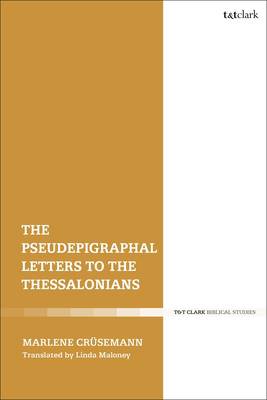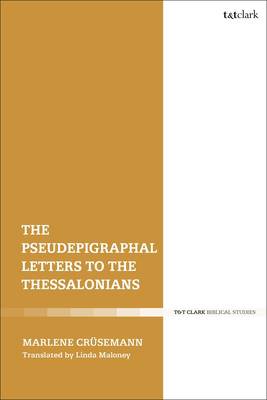
- Afhalen na 1 uur in een winkel met voorraad
- Gratis thuislevering in België vanaf € 30
- Ruim aanbod met 7 miljoen producten
- Afhalen na 1 uur in een winkel met voorraad
- Gratis thuislevering in België vanaf € 30
- Ruim aanbod met 7 miljoen producten
Zoeken
Omschrijving
Marlene Crüsemann examines the Thessalonian letters in the context of Jewish-Christian social history; building upon her analysis of 1 Thessalonians, Crüsemann comes to the conclusion that it is post-apostolic epistolary communication, and questions whether it is a letter of Paul and indeed whether it is an early letter. This analysis in turn adds weight to the thesis, propounded by some previous scholars, that the letter is somewhat out of place and may be a later work by another author.
Crüsemann subsequently illustrates that 2 Thessalonians, by contrast, revokes the far-reaching social separation from Judaism that characterizes 1 Thessalonians, and thus aims socio-historically at a solidarity with the entire Jewish people. Analysing the concept of the Jews as supposed enemy, the future of the Greek gentile community, and the relationship between the two letters, Crüsemann concludes that the discussion about a "divergence of the ways of Christians and Jews" in early Christian times needs to be realigned.
Crüsemann subsequently illustrates that 2 Thessalonians, by contrast, revokes the far-reaching social separation from Judaism that characterizes 1 Thessalonians, and thus aims socio-historically at a solidarity with the entire Jewish people. Analysing the concept of the Jews as supposed enemy, the future of the Greek gentile community, and the relationship between the two letters, Crüsemann concludes that the discussion about a "divergence of the ways of Christians and Jews" in early Christian times needs to be realigned.
Specificaties
Betrokkenen
- Auteur(s):
- Vertaler(s):
- Uitgeverij:
Inhoud
- Aantal bladzijden:
- 376
- Taal:
- Engels
- Reeks:
Eigenschappen
- Productcode (EAN):
- 9780567694881
- Verschijningsdatum:
- 9/07/2020
- Uitvoering:
- Paperback
- Formaat:
- Trade paperback (VS)
- Afmetingen:
- 156 mm x 234 mm
- Gewicht:
- 526 g

Alleen bij Standaard Boekhandel
+ 159 punten op je klantenkaart van Standaard Boekhandel
Beoordelingen
We publiceren alleen reviews die voldoen aan de voorwaarden voor reviews. Bekijk onze voorwaarden voor reviews.








